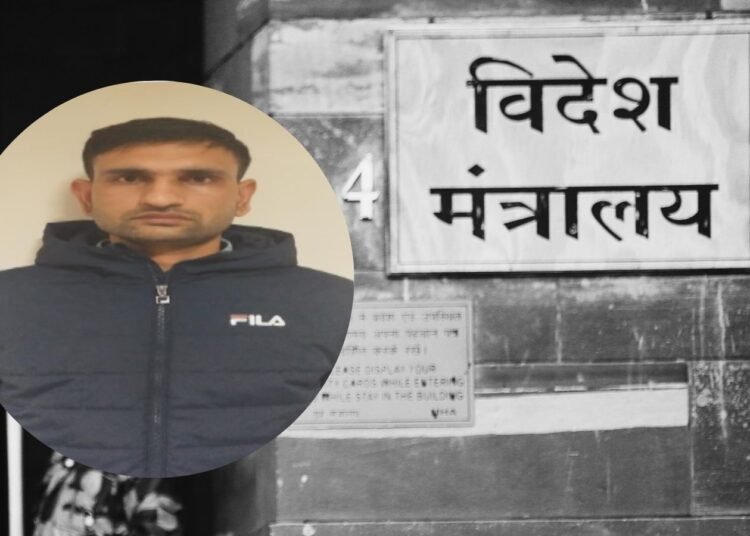In a startling development, Satendra Siwal, an official posted at the Indian Embassy in Moscow, has been arrested in Uttar Pradesh on charges of spying. The Uttar Pradesh Anti-Terrorist Squad (ATS) revealed that Siwal is accused of providing important confidential information regarding the strategic activities of the Ministry of Defence, the Ministry of External Affairs, and Indian military establishments to Pakistan’s Inter-Services Intelligence (ISI) in exchange for financial gains.
Siwal’s arrest comes after an FIR (First Information Report) was registered against him at the ATS police station in Lucknow under Section 121A of the Indian Penal Code (IPC), which pertains to waging war against the country, and the Official Secrets Act, 1923. The ATS stated that Siwal was providing sensitive information about various government bodies, compromising national security interests.
Siwal, a resident of Shahmahiuddinpur village in Hapur, Uttar Pradesh, had been working in the Ministry of External Affairs and was posted as the India-Based Security Assistant (IBSA) in the Indian Embassy in Moscow in 2021. This incident has raised concerns about foreign espionage activities targeting Indian diplomatic missions and government institutions.
The ATS disclosed that they had received information from secret sources indicating that ISI handlers had been attempting to lure employees from the Ministry of External Affairs with financial incentives to disclose strategic information. Siwal was identified as one of the staff members at the external affairs ministry who was allegedly in contact with ISI handlers.
Following the receipt of this information, Siwal was called to the ATS field unit in Meerut for interrogation. During the questioning, his responses were deemed unsatisfactory, leading to deeper inquiries. Subsequently, Siwal confessed to his involvement in spying for the ISI, divulging sensitive information that could compromise national security.
The ATS, conducting a thorough investigation through electronic and physical surveillance, found that Siwal had been engaging in anti-India activities, collaborating with a network of ISI handlers. The extent of the information shared and the potential impact on national security are being assessed as part of the ongoing investigation.
In response to the arrest, the Ministry of External Affairs (MEA) acknowledged that they are aware of the situation and are working with investigative authorities in this case. The arrest of an official stationed at the Indian Embassy in Moscow raises questions about the effectiveness of security measures in diplomatic missions abroad and the need for enhanced vigilance to safeguard sensitive information.
Espionage activities, especially involving foreign intelligence agencies, pose a significant threat to a country’s national security. The arrest of an embassy official for allegedly sharing confidential information highlights the challenges in ensuring the integrity of government institutions. It is crucial for authorities to conduct a thorough investigation to uncover any potential espionage network operating within government agencies.
This incident may prompt a reevaluation of security protocols, background checks, and monitoring systems within government institutions to prevent unauthorized access to sensitive information. Additionally, it underscores the importance of fostering a culture of security awareness among government employees to mitigate the risk of espionage.
The Ministry of External Affairs, being the frontline agency responsible for managing India’s diplomatic relations, will likely review and strengthen security measures to prevent such incidents in the future. Diplomatic missions play a crucial role in representing a country’s interests abroad, and any compromise in the security of these missions can have far-reaching consequences.
The case also brings attention to the broader issue of cybersecurity, spying and the protection of sensitive information in the digital age. As government agencies increasingly rely on digital platforms for communication and data storage, ensuring robust cybersecurity measures becomes paramount to prevent unauthorized access and information leaks.
The arrest of Satendra Siwal on charges of spying for Pakistan’s ISI raises serious concerns about the vulnerability of government institutions to espionage activities. The incident highlights the need for a comprehensive review of security protocols and measures within diplomatic missions and government agencies to safeguard national security interests. The investigation will likely delve into the extent of the information shared, the potential impact on national security, and the presence of any larger espionage network operating within government establishments.














